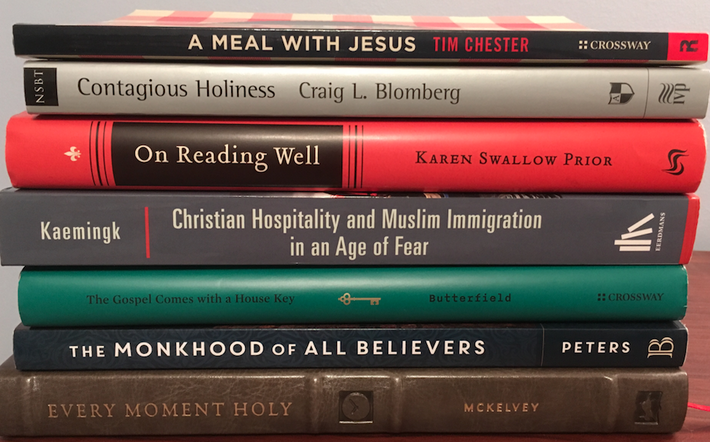posts
 2018 was a great year for books. I’m grateful for new books (and others that were new to me). I tended to read in my field (history, mission, theology) but I branched out a little, too. In no particular order, these were my favorite reads this year. Brian Stanley, Christianity in the Twentieth Century. Stanley’s aim is to evaluate the “multiple and complex ways in which the Christian religion and its institutional embodiment in the Christian churches have interacted with the changing social, political, and cultural environment of the twentieth century” (2018: 3–4). To do this, he chooses fifteen themes that show how the church responded to the changing twentieth-century world, offering two case studies for each theme to make his point. He succeeds in providing the reader a rather comprehensive picture of twentieth-century global Christianity, including some places and people that may not get as much attention in other survey works (e.g., Polish Catholics, African Orthodox Christians, Australian Anglicans). My full review HERE. Greg Peters, The Monkhood of all Believers. Playing off some treasured Protestant language, Peters argues that though every Christian is not a monk in the institutional sense, monastic values are central to the Christian experience. Borrowing Martin Luther’s words, a Christian can be a monk but not a monk. I am a fan of Greg Peters’ scholarship and I learned much in this new work from his careful interaction with a breadth of sources—from early Christian monks, Russian Orthodox thinkers, Protestant Reformers, and Anglican sources. Peters successfully shows that the monastic impulse is present across Christian traditions. My brief review HERE. Ben Myers, The Apostles’ Creed. Breaking down each line of the creed, Myers’ engages Scripture and also leans on the thought of church fathers such as Ireneaus, Origen, Gregory of Nyssa, and Augustine. We grasp how the creed was articulated in the face of challenges from Gnosticism, Marcionism, Novatianism, and others. I think what I appreciated most was Myer’s ability to discuss the ancient creed with 21st century cultural concerns in mind: individualism, gender identity, and the material world. Myers’ presentation of the creed—and the gospel—was winsome, dogmatic, and relevant. My brief review HERE. Rosaria Butterfield, The Gospel Comes with a House Key. Butterfield explores “radically ordinary hospitality” which she defines as “using your Christian home in a daily way that seeks to make strangers neighbors, and neighbors family of God” (2018:31). With much biblical reflection, she offers a concrete model of hospitality offered on her street in Durham, North Carolina. Craig Blomberg, Contagious Holiness: Jesus’ Meals with Sinners. After surveying meals and hospitality practices in the Old Testament, Blomberg offers a thorough study of Jesus’ meetings at table with sinners and outcasts in the Gospels. Tim Chester, A Meal with Jesus. A practical work, Chester explores Jesus’ table ministry in Luke’s Gospel. Chester’s book reads like a short sermon series and a basis for his missional community church planting ministry. Karen Swallow Prior, On Reading Well. In this compelling work, Prior invites the reader to the joyous habit of reading. Urging “promiscuous reading,” Prior guides the reader through a survey of classical literature and a pursuit of virtue. The author integrates a love for God, Christian virtue, and literature. I was personally challenged to add more fiction (and imagination) to my reading diet. Douglas Kaine McKelvey, Every Moment Holy. My wife and I picked this up at an Andrew Peterson concert in the Spring. A supplement to our morning devotions, we have enjoyed this book of liturgy and prayers for many of life’s occasions. This tool reminds us that we live continuously in God’s presence thus making every moment an opportunity for holiness. Comments are closed.
|
Archives
November 2023
|
 RSS Feed
RSS Feed
